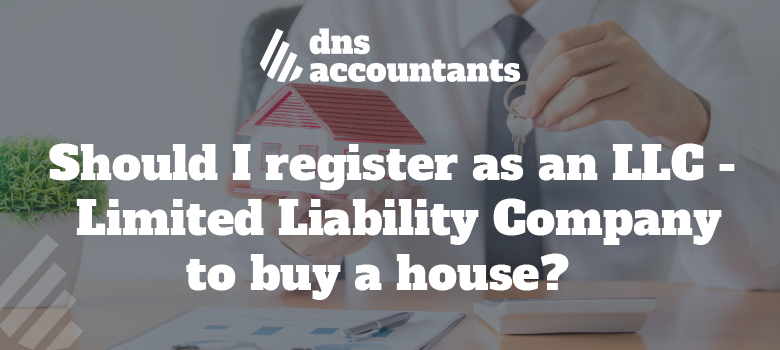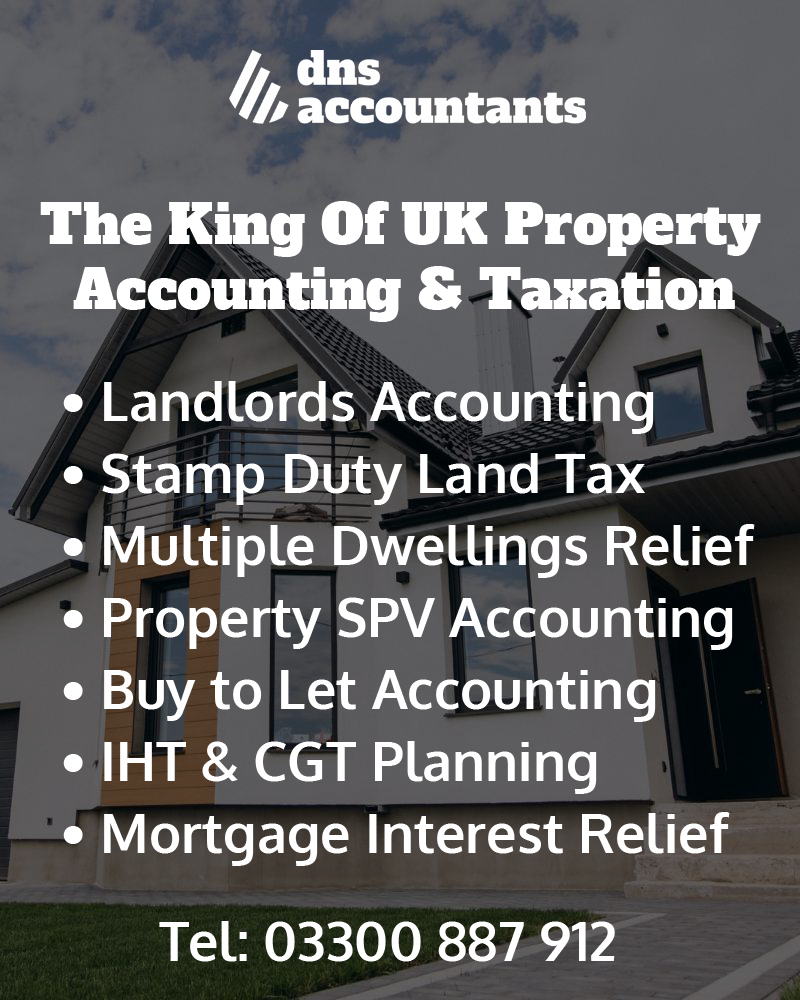
Many homeowners and private landlords have been registering themselves as LLCs to buy properties across the UK. An LLC is one type of business entity that can be used to buy properties in the UK. However, is registering as a business to buy a house in the UK worth it?
Let us understand how the different ways of buying a property in the UK work and how you can benefit from it.
Different ways of buying a property
There are two ways to buy a property in the UK that entirely change the way you pay your taxes. You can buy a property as:
An individual: If you own a buy-to-let property as an individual and earn rental income, you are obligated to pay income tax on that income. The rate of tax you pay is determined by your marginal tax rate. For example, if you are a basic-rate taxpayer, you will pay tax at a rate of 20%. However, if you fall into the higher rate tax bracket, you will have to pay tax at a rate of 40%, and if you are in the additional rate tax bracket, you will have to pay tax at a rate of 45%.
An LLC: When you purchase a property as a limited company and generate rental income, you are subject to paying corporation tax on that income. The current rate of corporation tax is 19%.
Choosing an LLC as a business structure can help reduce personal exposure to financial risk.
LLC stands for limited liability company. It takes up to one week to register an LLC in the UK. It will require one shareholder, one director, and a minimum paid-up capital of £1. Currently, LLCs in the UK are subject to a corporation tax of 19% and must file financial statements to the Companies House.
However, a variety of changes to the tax rules have been made over the years. This has prompted many private landlords to invest in properties through LLCs to receive tax benefits. Apart from private landlords, the LLC structure also benefits parents seeking to mitigate inheritance tax. Let us understand the changes to the tax rules.
Changes to the tax rules
Prior to April 2017, individual landlords were permitted to subtract the entire amount of their mortgage interest payments from their rental income before calculating their tax liability.
However, this practice was gradually phased out, resulting in landlords only being able to deduct a portion of the interest. By April 2020, landlords were no longer allowed to deduct any mortgage interest payments from their rental income for tax purposes. Limited liability companies benefit from these tax changes by having a more favorable tax treatment compared to individual landlords.
Previously, landlords could deduct their entire mortgage interest payments from rental income for tax purposes, but this was phased out later. Now, they can only claim a 20% tax credit. This results in a lower benefit for higher-rate taxpayers compared to previous rules. Other changes to the tax rules include:
- A stamp duty surcharge on additional homes was introduced in 2016, adding thousands of pounds to property purchase costs.
- Since 2018, landlords must ensure that rented properties have an EPC rating of E or higher, leading to high costs for compliance.
- From April 2025, all newly-let private rental properties must have an EPC rating of C or above.
How to register as an LLC?
The first step to setting up an LLC in the UK is by registering it with the Companies House and paying the initial registration fee. You will also need to pay corporation tax. Hence, you will also need to register with HMRC.
Some types of companies, such as public limited companies, require a company secretary as part of their legal structure.
Do note, if you are transferring existing property from an individual name to the limited company, it will incur stamp duty as it is treated as a property sale. This also applies to second homes and buy-to-let properties.
Incorporating an LLC also incurs extra costs, such as legal fees and other miscellaneous costs.
Advantages of buying a property through an LLC
Profits are taxed more efficiently with corporation tax
Private landlords are taxed on their rental income alongside their other earnings, with rates ranging from 20% to 45% based on their income. The standard personal tax-free allowance is currently £12,571, but it reduces for those earning above £100,000. The tax bands are as follows:
- The basic rate of 20% applies to income between £12,501 and £50,000.
- The higher rate of 40% applies to income between £50,001 and £150,000.
- The additional rate of 45% applies to income over £150,000.
Landlords who invest in property through a limited liability company (LLC) pay corporation tax on their profits at a rate of 19%, which is set to rise to 25% by 2023. While tax still applies when accessing rental income through salary or dividends, tax accountants can help minimize the amount paid.
Inheritance tax benefits
Landlords can benefit from inheritance tax benefits by buying their property portfolio through a limited company and applying Business Property Relief (BPR) to their income and assets.
It is important to identify individuals with significant control over the company, typically those with a 25% or more stake in the business or with voting rights.
This form of tax relief is specifically aimed at limited companies, allowing landlords to avoid large amounts of inheritance tax when passing down their properties to children or family members. Sole traders and public companies cannot access BPR, making it a unique benefit for limited companies.
Possibility to borrow comparatively larger amounts of money from banks
Limited companies may be able to secure larger mortgages from banks compared to personal owners. This is because mortgage firms usually lend bigger amounts based on rental income for limited companies.
Setting up a business bank account is essential for monitoring the company’s flow of funds and keeping it separate from personal accounts.
Since limited companies are subject to corporation tax, their profits are calculated after tax, which means that they are able to show a higher net income from rental properties. This makes them more attractive to lenders who consider rental income when deciding how much to lend for a mortgage.
Disadvantages of buying a property through an LLC
Extensive paperwork
Setting up an LLC and buying a property through it can be tedious as it will require extensive amounts of paperwork. Setting up a company bank account is one of the additional administrative requirements when incorporating an LLC. Moreover, since limited companies generally have higher taxes to pay in comparison to sole entities, they will most likely have higher accountant costs as well.
Higher mortgage rates
Limited companies may face limited options when it comes to buy-to-let mortgages, with fewer lenders offering such loans. However, more lenders are starting to offer them, which is causing interest rates to decrease. Despite this, limited company mortgage rates are still generally higher than standard buy-to-let deals, and there may be hefty arrangement fees to pay.
Private limited companies (Ltd) may also face higher mortgage rates compared to individual owners, but they can benefit from more lenders offering such loans.
Dividend taxation
If you withdraw rental profits from your limited company, you will be taxed on the dividends you take after paying corporation tax. This can lead to hefty dividend tax payments. Therefore, deciding whether to live off your rental income or leave it to accumulate requires a careful calculation of the tax implications. Limited liability partnerships (LLPs) also have specific tax implications for withdrawing profits, which should be carefully considered.
Conclusion
Buying a property as an LLC does have certain benefits. However, whether you decide to register as an LLC or not before buying a property depends on your personal objectives. Ultimately, you need to do your own research and figure out whether registering as an LLC will help you reduce the taxes you owe in the long term.
Frequently Asked Questions
Why would registering as a limited liability company be beneficial for purchasing a house in the UK?
Registering as an LLC can provide limited liability protection, potentially safeguarding your personal assets in case of legal issues related to the property.
Are there any specific requirements for setting up an LLC to buy a house in the UK?
Yes, there are specific legal and regulatory requirements that need to be met when establishing an LLC in the UK. It is advisable to seek professional advice to ensure compliance.
Will registering as an LLC affect my ability to obtain a mortgage for the property?
Lenders may have different criteria when dealing with LLC-owned properties. It is recommended to consult with mortgage advisors to understand the implications on financing.
What are the tax implications of buying a house in the UK through an LLC?
There are tax considerations associated with owning property through an LLC, including potential stamp duty land tax and ongoing tax obligations.
It is advisable to seek guidance from tax professionals. Can an LLC be used for property investment purposes in the UK?
Yes, an LLC can be a suitable vehicle for property investment in the UK, offering flexibility in ownership structure and potential tax benefits. Consult with legal and financial advisors for tailored advice.
What are the key differences between owning a property personally and through an LLC in the UK?
Owning a property through an LLC can provide limited liability protection, potential tax advantages, and enhanced asset protection. However, it involves additional administrative and compliance requirements compared to personal ownership. It is recommended to weigh the pros and cons based on your specific circumstances.
